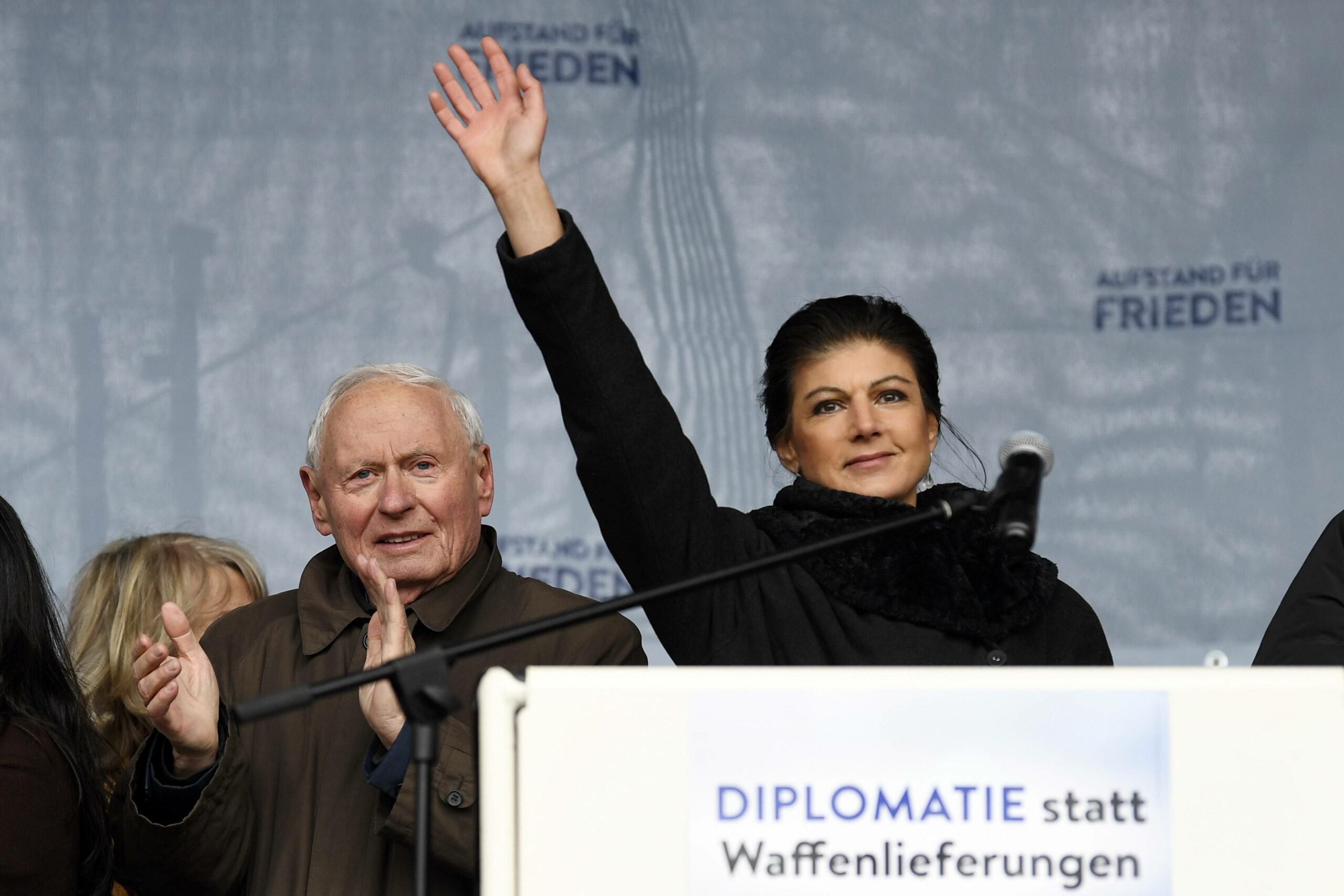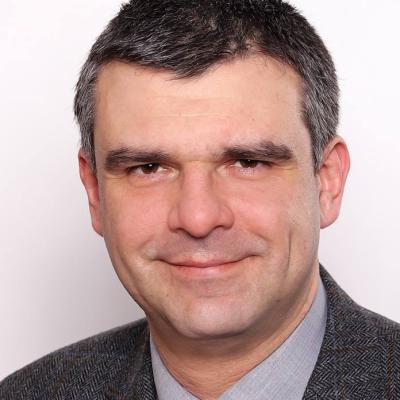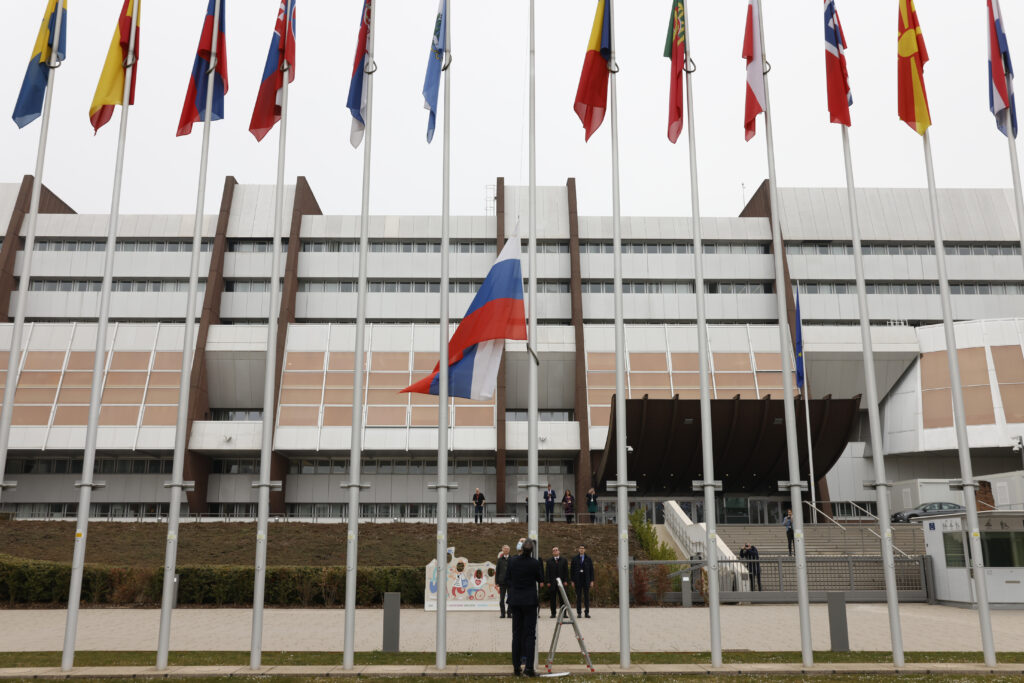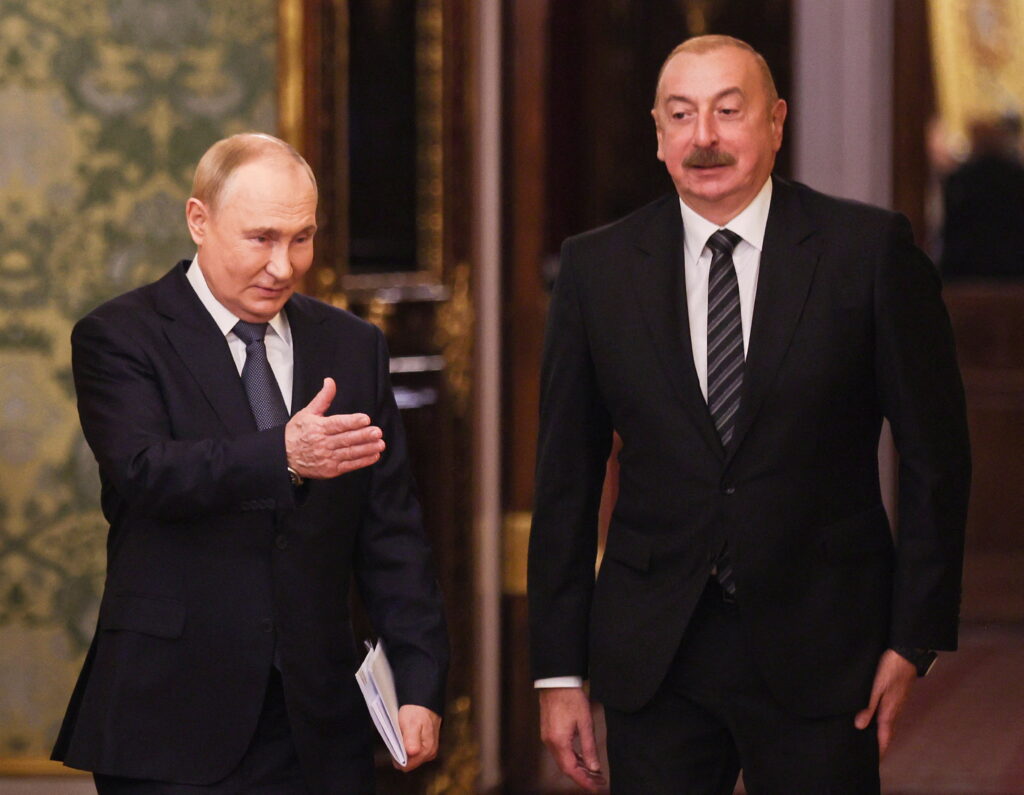The German weekly Die Zeit has called politician Sahra Wagenknecht an «unwavering Putin apologist,» while back in 2014 Der Spiegel magazine unequivocally listed her among Putin’s «friends.» In January 2024, Wagenknecht announced that she was about to form a new party, Bündnis Sahra Wagenknecht — Vernunft und Gerechtigkeit (BSW), or Sahra Wagenknecht Alliance — Reason and Justice. Besides Wagenknecht, the party was co-chaired by her former successor as the co-chairperson of The Left Party in the Bundestag, Amira Mohamed Ali. For Wagenknecht and her supporters, the formation of their own political project was the natural and expected outcome of years-long process of distancing themselves from the Left Party, which has found itself in the grips of a profound crisis. According to the leaders of the newly founded party, BSW is here to stay: it has serious ambitions and a long-term vision to see them through. It aims at becoming «one of the country’s main parties in 30−40 years» and to «fundamentally change politics» in Germany. What are the chances that the new party will succeed in realizing its ambitions? What electoral niches will it be able to occupy? To what extent is this project pro-Russian?
Political old-timer
Wagenknecht is rightly considered to be a «veteran» of German politics. Over the past 30 years, she has served on the boards of a number of far-left organizations, from the Party of Democratic Socialism (PDS), legal successor to the Socialist Unity Party of Germany (SED), (which ruled East Germany as a state party until 1990), to the Communist Platform, the most left-wing faction of the Left Party. A seasoned politician, Wagenknecht has held mandates in the European Parliament and the Bundestag, led a parliamentary faction, and exerted considerable influence across the German political spectrum to the left of the Social Democrats. Among her colleagues in the ranks of the Left Party, Wagenknecht enjoyed a reputation as a charismatic and strong player, willing to fight for power even at the cost of weakening party unity and suffering electoral losses. In practice, however, the left was divided into supporters and opponents of Wagenknecht, which only deepened the party’s crisis. In 2021, several members of the Left Party from the regional branch of Wagenknecht’s own North Rhine-Westphalia (she represents this federal state in Bundestag) applied/appealed to have her expelled from the party. Their initiative failed, but it became clear that the politician’s departure from the Left was only a matter of time.
While still serving as one of the leaders of the Left Party, Wagenknecht had made sure «to procure» a backup plan, a political «parachute» of sorts. In 2018, she announced the creation of the collective movement Aufstehen («Stand up»), which was modeled on France’s left-wing populist party La France insoumise («France Unbowed») and was meant to become a common platform for the extreme left and left-populist forces in Germany that were not represented in the country’s conventional political landscape. «Stand Up» opened branches in many German cities and received support even from some left-leaning Social Democrats and the Greens, as well as academics and cultural figures critical of modern capitalism. The project, however, was not very successful. It failed to evolve into a full-fledged party and remained just another left-wing discussion platform. Wagenknecht discerned the ominous signs of it early on. As early as 2019, she left the organization, having seen its futility as an instrument of active political struggle. Membership in a «special interest club» was not part of her plans.
What are her chances?
The new party is led by leftwing and ultra-left politicians. Wagenknecht herself has gained popularity as a fierce critic of capitalist relations and ‘defender of the common people’. However, not only does BWS avoid the traditional left-right division of the political spectrum, but it even seeks to overturn it as outdated. The «leaderism» enshrined in the Alliance’s name, which is highly atypical and frowned upon in German political practice, is part of the process of eroding the old ideological palette. The party is built as a political-commercial project: every vote counts, any voter is welcome. Wagenknecht and her allies advocate limiting migration but support the right to asylum, welcome progress and new technologies but do not want to give up non-renewable energy sources, support business but criticize big corporations, plan to increase social benefits and pensions and to restore social justice to Germans while keeping the current level of taxes. The party’s lack of action was expressed by its financial director, investor and millionaire Ralph Suikat. For him, the launch of the party is a «startup.»
On the surface, Wagenknecht’s sharpest attacks are reserved for the Greens. She presents herself as «an advocate for ordinary people,» speaking out against «an elite minority imposing its world view.» She exposes the Greens’ «endless arrogance», alleged «incompetence» and «dishonesty» and argues that they are «the most dangerous party in the Bundestag.» This does not prevent her supporters from cooperating with the Greens at the municipal level. In reality, however, the new party’s main rival is likely to be the right-wing AfD («Alternative for Germany»). Wagenknecht’s places her main bet on the unstable electoral pool of «dissatisfied» voters who vote or are prepared to vote for the AfD. That is why she simultaneously sends out anti-migrant messages to voters, advocating the use of conventional energy sources and criticizing the program to ban diesel engines. These slogans are a far cry from typical left-wing agenda and resonate with the AfD’s electorate.
Potentially, BSW can indeed appeal to a wider range of voters than the Left Party, whose share of the vote has long been below the Bundestag threshold. Wagenknecht has a chance to establish herself in German politics and remain an important player for a while. At the same time, in its insatiable pursuit of the votes of the «disaffected» the new party risks falling into an electoral trap: it will be «too left-wing» for the far-right and rightwing conservatives because of its leaders’ political background, and «too rightwing» for the far-left and leftwing because of its current rhetoric.
Sociologists believe that for the time being the results of the first polls on BSW’s popularity should be taken with a grain of salt. The main reason for their skepticism is the extremely high margin of error. One example is the data from Thuringia, the only federal state led by a left-wing prime minister, where elections will be held in September. According to the INSA research group, at the time of the survey 17% of Thuringians were prepared to vote for Wagenknecht’s party, while a study by the Forsa institute conducted at the same time ended up with a much lower figure of just 4%. The situation is similar in Brandenburg, where state elections will also be held this year: potential support for BSW there is also 13% and 4% respectively, depending on the study. At the same time, the ratings of the other parties in the polls are rather similar. Experts explain this phenomenon by the uncertainty felt by voters, their initial perception of the new party colored by emotions. The situation will become clearer once BSW has established itself within the country’s political landscape and once it has set up local party organizations in various federal states. Then it becomes clear which of the prominent local left-wing politicians are willing to join Wagengnecht.
BSW and Russia: Pragmatic Anti-Westernism
Wagenknecht has never hidden her antipathy towards the United States, the West in general, and for Germany’s support of Ukraine in particular. A list of her quotes that come as close as possible to, or even copy, key Kremlin narratives could take up pages and pages. While other leaders of the left condemned, albeit with reservations and disclaimers, Russian annexation of Crimea in 2014 or spoke of other ways of resolving the conflict, Wagenknecht declared the need to recognize the results of the «referendum» on the annexation of the Ukrainian peninsula to Russia. She accused her opponents of turning a blind eye to the «fascist elements in the Ukrainian government» and opposed providing Kyiv with financial aid, which she claimed came at the expense of «German taxpayers’ money.» In early 2022, Wagenknecht was quick to draw her own conclusions about the «reasons» (as she understood them) behind Moscow’s military aggression against the whole of Ukraine: «This war would have been impossible without the creeping integration of Ukraine into NATO.» Together with social activist Alice Schwarzer, she has co-organized most of the mass actions against arms supplies to Kiev and in favor of «peace with Russia», effectively calling for the surrender of the Ukrainian state and the recognition of the annexation of the occupied territories. According to Wagenknecht, the sanctions against Russia are a form of «economic warfare» and she also claims that «sanctions are destroying us», i.e. Germany.
Other prominent politicians who have joined the BSW hold similar views to Wagenknecht on the West’s strategy in the Russia-Ukraine war. Sevim Dağdelen, a left-wing member of the Bundestag, called it «madness» to supply arms to Ukraine. She also speaks of an «economic warfare» allegedly waged against RF and condemns «stupid energy sanctions against Russia». Klaus Ernst, another member of the Bundestag, also calls for the lifting of sanctions that are «really targeting and harming own people.» Ernst refers to Russian Foreign Minister Sergei Lavrov to stress «Russia’s readiness for peace talks.» The new party’s more moderate flank is represented by Amira Mohamed Ali. Declaring that «an arms race will not lead to peace», she admits to having «no understanding of what Russia is really doing» and believes that «only Ukraine can decide if it is ready to sacrifice its territories for peace.»
Wagenknecht’s long-standing sympathy for today’s Russia has repeatedly prompted journalists to speculate about possible channels of funding that she had found in the Russian Federation. Not only Germans, but also Russians, for instance, the former Channel One editor Marina Ovsyannikova, have put forward similar theories in the German media. These speculations intensified after BSW opened an account at Volksbank Pirna, a small, little-known bank whose management has close ties to Russia. The bank’s chairman, Hauke Haensel, opposes Western sanctions and has even decorated his Facebook account with a cover photo of the Red Square. BSW denies receiving «large donations from Russia» and attributes its choice of bank to a desire for «decentralization» so as to avoid «big banks with their call-centers.» Donations to political parties from abroad are strictly controlled in Germany. The parties themselves generally refuse to accept donations of more than € 1,000 from a single foreign individual or legal entity outside the EU. Wagenknecht claims that she follows these rules religiously.
Sahra Wagenknecht is no stranger to the Russian information space. State-run or official media like to quote her statements about the «impossibility of Ukraine’s victory», the «irresponsibility» of making statements promising Kyiv EU membership, and calls for «an end to the confrontation with Russia» at political rallies. The image of a «popular German politician and MP» who «defends the real Germany» and opposes the «Western mainstream» is appealing and useful for Russian propaganda.
In the last months before the new party was founded, Wagenknecht, for tactical reasons, to be sure, slightly downplayed her «understanding» for Russia’s actions. BSW seeks to attract a broad constituency of those dissatisfied with the current government, and not all critics of official Berlin are prepared to embrace her openly pro-Russian rhetoric. Wagenknecht assures her audience that she «certainly has no intention of founding a pro-Putin party.» At the first BSW conference, she even mildly reprimanded Moscow for its excessive use of force and violation of international law, but at the same time emphasized that Ukraine cannot win the war and that in her opinion, there are no alternatives to a peace agreement with Russia, including recognition of the new realities. In the published draft program of the new party, the United States is the only country, which is charged with «violating international law.»
However, the new party’s basic international principles are fully in line with Wagenknecht’s own views, which clearly have not changed: militant anti-Americanism, rejection of the world order as it has been shaped since the end of the Cold War, the alleged «bankruptcy» of the Western socio-political model, including globalization and multiculturalism, and the desire to dismantle it. In foreign policy, under the guise of «détente», BSW de facto advocates the return of traditional spheres of influence, the «right of the powerful» and the primacy of economic gain. And here she has many things in common with the Kremlin. For Wagenknecht, Russia is an anti-American force and Ukraine — a mere «tool in the hands of the Americans in the struggle for dominance in Europe.» While the new party mentions Russia and China in its program, it ignores the harsh exploitation of wage labor and the more barbaric forms of capitalism than in the West that prevail in these countries. Nor is the fact that Ukraine is a victim of imperialist aggression too important for BSW. These issues, seemingly of paramount importance to the left, seem unimportant to Wagenknecht.
It is not the first time that the German politicians who are the «friendliest» towards Russia come from the extreme left and the extreme right of the political spectrum. Whereas for historical-political and nationalist reasons, there is no uniform sympathy for Moscow in the ranks of the far right, Wagenknecht’s supporters have no particular obstacles to overcome. BSW may not be Kremlin’s pawn, but it is closer to the concept of «pro-Russian» than any of the well-known political parties in Germany.










